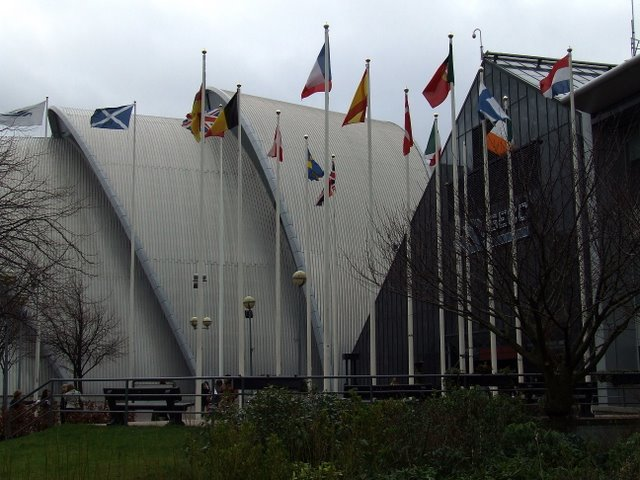Transnational agency has been key for building and maintaining regional social and cultural infrastructures in the UK.
Working with Wilton Park, the Foreign, Commonwealth and Development Office’s executive agency, this fellowship (PARE) explores the parameters of paradiplomacy – links between sub-state units with international actors – in the context of regional regeneration historically and in the present.

[Scottish Exhinbition and Conference Centre, Glasgow, 2007, photo by Tomas Nugent]
Through a programme of research and policy labs, PARE creates mutually beneficial knowledge exchange between project partners and shares key insights with critical stakeholders involved in paradiplomacy and regional regeneration. PARE addresses two fundamental challenges the UK faces as it adjusts to its departure from the EU: first, the maintenance beyond Brexit of paradiplomatic networks that emerged during the UK’s EU membership and formed part of the socio-cultural infrastructure of regional regeneration; and, second, the emergence of conflicts between and among different agencies and actors within Britain about the role of these networks.
This project is generously funded by the British Academy through an Innovation Fellowship (IF2223\230126).
